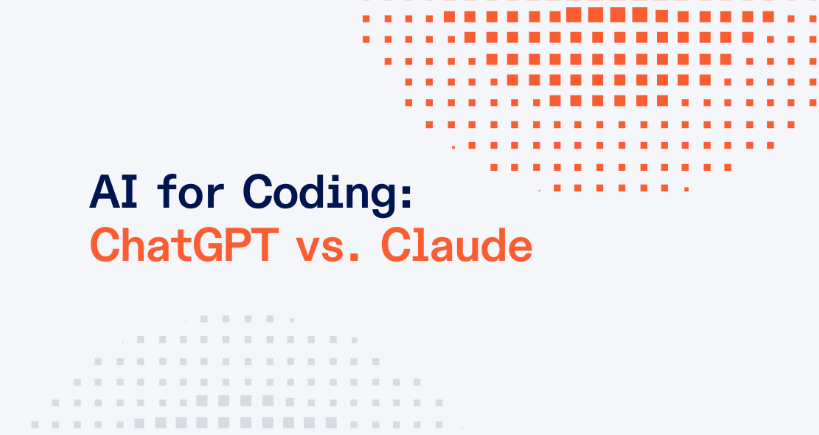In the rapidly evolving landscape of software development, AI coding assistants have transitioned from novelties to indispensable tools. By 2025, two titans have emerged as the frontrunners in this space: OpenAI's ChatGPT and Anthropic's Claude. For developers, choosing the right AI partner is critical for boosting productivity, enhancing code quality, and accelerating innovation. This comprehensive guide provides a data-driven comparison of ChatGPT vs. Claude for coding, helping you select the best tool for your specific needs.
Understanding the Contenders: A Tale of Two AIs
What is ChatGPT for Coding?
Powered by OpenAI's advanced GPT models, like GPT-4o, ChatGPT is a versatile AI assistant known for its vast training data and broad language support. It excels at rapid prototyping, generating quick code snippets, and supporting a wide array of general-purpose programming tasks. Its deep integration into the Microsoft and broader application ecosystem makes it a popular choice for developers looking for speed and versatility.
What is Claude for Coding?
Developed by Anthropic, Claude is an AI assistant engineered with a strong emphasis on safety, clarity, and handling large-scale tasks. A key differentiator for Claude is its significantly larger context window, which allows it to process and reason over extensive codebases and documentation. This makes it particularly powerful for complex debugging, in-depth code analysis, and maintaining consistency across large, multi-file projects.
The Core Coding Showdown: A Head-to-Head Analysis
Code Generation and Quality
When it comes to generating functional code, both models are highly capable, but they shine in different areas. ChatGPT is often faster for generating boilerplate code, small scripts, and functions in popular languages. However, benchmarks and user experiences in 2025 suggest that Claude often produces cleaner, more structured, and nearly bug-free code on the first attempt, especially for complex tasks. Claude's ability to ask clarifying questions helps reduce ambiguity, leading to more robust initial outputs.
Debugging and Problem-Solving
Debugging is where the architectural differences become apparent. ChatGPT is highly effective at identifying a wide range of errors, from simple syntax mistakes to more common logical flaws, and provides detailed explanations, making it a valuable learning tool. On the other hand, Claude's strength lies in debugging large, complex projects. Its large context window allows it to analyze dependencies across multiple files, identify performance bottlenecks, and suggest targeted fixes that minimize regressions. For intricate bugs that require deep, contextual understanding, Claude often has the upper hand.
Handling Large and Complex Codebases
This is Claude's signature strength. With a context window that can exceed 200,000 tokens, Claude can effectively “read” and analyze entire repositories or extensive technical documentation. This makes it exceptionally well-suited for tasks like refactoring legacy systems, ensuring consistency across a large project, or generating comprehensive, context-aware documentation. While ChatGPT's context window is substantial, it is smaller than Claude's, making it more suited for smaller, self-contained projects.
ChatGPT vs. Claude: At a Glance
| Feature | ChatGPT (Powered by GPT-4o and later) | Claude (Powered by Claude 3.5 & 4 series) |
| Code Generation | Excellent for rapid prototyping, snippets, and common tasks. | Superior for structured, clean, and complex code generation. |
| Debugging | Strong for quick fixes and explaining common errors. | Excels at deep, multi-file debugging and performance analysis. |
| Context Window | Substantial (e.g., 128,000 tokens), suitable for most projects. | Very large (200,000+ tokens), ideal for large codebase analysis. |
| Speed | Generally faster response times, great for quick iterations. | Can be more deliberate, trading raw speed for higher-quality output. |
| Best Use Cases | Prototyping, small projects, learning, general coding tasks. | Large-scale refactoring, complex debugging, codebase analysis, enterprise workflows. |
| Ecosystem | Mature ecosystem with extensive integrations (GitHub, JetBrains, etc.). | Growing ecosystem with strong support in AI-first IDEs like Cursor. |
Who Should Use Which AI?
Choose ChatGPT if:
-
You are a beginner or student looking for a learning tool.
-
You need to rapidly prototype ideas or generate code for small to medium-sized projects.
-
Your workflow prioritizes speed and quick iterations.
-
You rely heavily on a broad ecosystem of plugins and integrations.
Choose Claude if:
-
You work with large, complex, or legacy codebases.
-
Your primary tasks involve in-depth debugging, code refactoring, or security analysis.
-
You require highly structured and detailed outputs, such as technical documentation or API specifications.
-
Maintaining long-term context and consistency across multiple files is critical to your project.
Conclusion: A Partner, Not a Replacement
In the 2025 developer toolkit, the choice between ChatGPT and Claude is not about which AI is definitively “better,” but which is the right partner for the job at hand. ChatGPT excels in speed and versatility, making it a fantastic co-pilot for everyday coding tasks. Claude, with its massive context window and deep reasoning abilities, acts more like a senior technical lead, perfect for navigating the complexities of large-scale projects. The future of software development is not about AI replacing developers, but about human-AI collaboration driving unprecedented levels of productivity and innovation.
Frequently Asked Questions (FAQ)
1. Can AI models like ChatGPT and Claude replace human developers in 2025?
No. While AI significantly boosts productivity by automating repetitive tasks, it does not replace the critical thinking, problem-solving, and architectural design skills of human developers. These tools are best viewed as powerful assistants that augment a developer's capabilities.
2. Which AI is better for learning a new programming language?
Both are excellent learning aids. ChatGPT's interactive and quick-response nature is great for beginners asking fundamental questions. Claude's ability to analyze and explain large, complete code examples can be more beneficial for intermediate developers looking to understand real-world application structures.
3. How does the cost of using ChatGPT vs. Claude compare for professional developers?
Both services offer competitive subscription plans for their premium models (around $20/month for Pro/Plus tiers). The true cost can depend on API usage for larger projects. While ChatGPT may seem cheaper on a per-token basis for some tasks, Claude's higher accuracy can lead to fewer iterations, potentially balancing the overall cost. Developers should evaluate based on their specific usage patterns.









